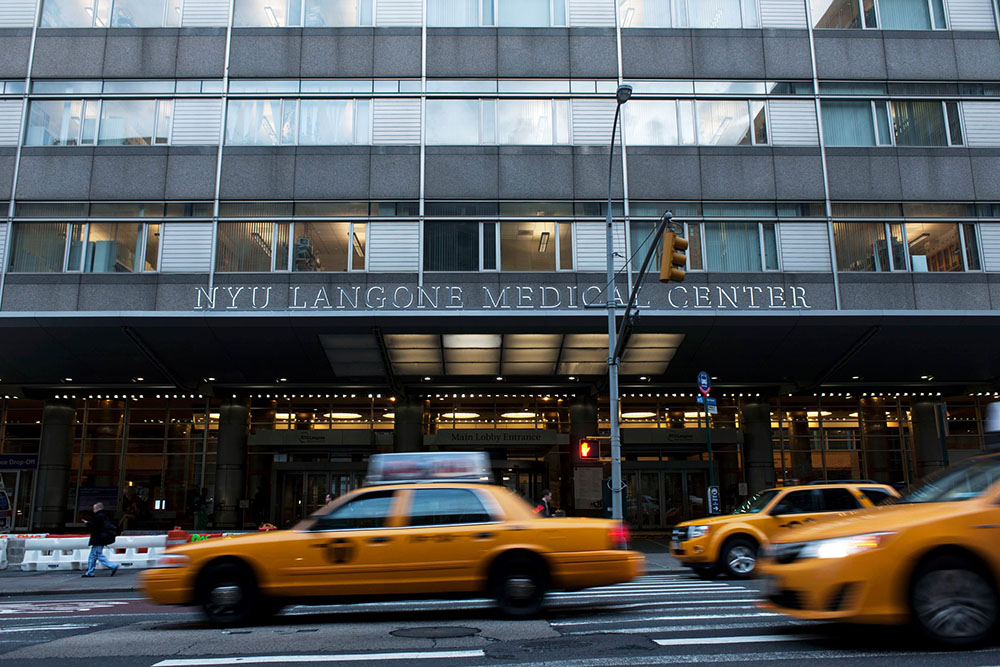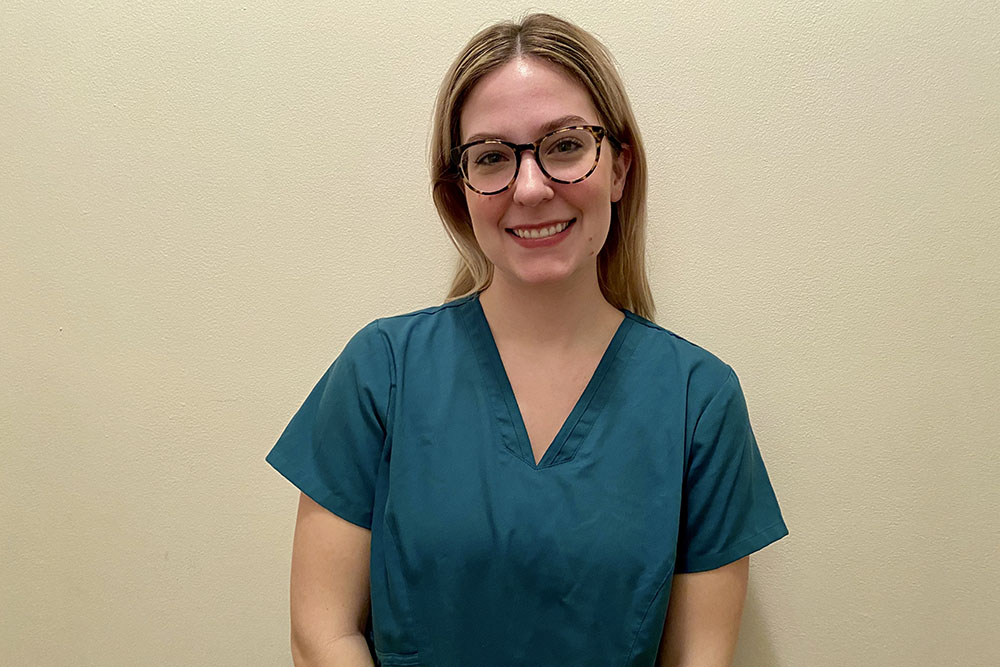
Her Walk In
The walk into Jessica Herren’s (BSN `18) job at NYU Langone Hospital is part march, part meditation.
During it, she breathes in the spring of Manhattan, which has lately seen a spate of 60-degree days. She exchanges texts with her brother, a New Jersey teacher, listens to music, or catches up on news through the tiny earbuds nestled in her ears.
These days, New York City’s sidewalks are mostly empty, and the 20 to 30 minutes it takes to walk between her East Village apartment to her job as an ICU nurse bridge her two worlds.
In one, she orders take out and watches reality TV on the couch with her roommate, a fellow ICU nurse. She chats with her boyfriend, enjoys clay face masks to keep her skin in shape, and laughs with family on FaceTime over the antics of their adopted rescue puppy, Stella.
In the other world, she’s clad in mint-green scrubs and layers of personal protective equipment caring for COVID-19 patients, most of whom are ventilated and impossibly ill. Against the spread of an illness that’s decimated Greater New York, she and her colleagues are doing their best to keep ahead of the virus that’s endlessly shifted protocols, sapped critical supplies, and terrified a nation.
“When things happen, they happen all at once,” said Herren, originally from Colonia, New Jersey. “It’s been hard to prepare because things are really changing every single day.”
It was early March when NYU began designating certain floors for COVID-positive patients, preparing staffers like Herren, usually a surgical ICU nurse, for what was to come, even as unknowns outweighed knowns. These days, most of her COVID patients are critically ill, and her shifts—she works nights, mostly—go by fast because she’s “really, really busy.”
“I don’t really give myself time to think about it,” explains Herren. “I’m in work-mode and just think, ‘These are my patients. This is what I do and need to do.’ I’m learning a lot and doing the best that I can.”

Even as she harbors profound worries about her patients, her loved ones, and how and whether she’s been exposed to coronavirus, Herren also counts her blessings. Unlike many of her coworkers whose roommates left town when the pandemic hit the city, her roommate, a fellow ICU nurse, has been a source of comfort and strength. Her mom, a lung cancer survivor, calls her often, and is feeling fine. And, even as COVID has infected nearly 130,000 residents of New York City, killing nearly 9,000, spring, too, has come.
“It’s so beautiful out, and there are so few people out,” muses Herren, “and that’s a good thing.”
For now, she hunkers down and keeps her worlds separate, and looks forward to the day when she can drive out of the city, windows down, to her parents’ house and play with Stella in her yard. She imagines seeing her mom again that first time and knows there will be tears.
She also knows how much her appreciation of others—especially her hospital’s housekeeping staff, building services personnel, respiratory therapists, as well as her neighborhood’s storekeepers, food service workers, and delivery people—has deepened.
“It’s not just nurses and doctors,” says Herren. “We’re all working together to get through this. We’re all leaning in and doing some of the hardest work now and trying to find the positive in it.”
Because, she says, there are still some good days, even against the bad ones. People do get better. Some of Herren’s patients have even walked out of the hospital, heading home to recover. That, she says, has bolstered her confidence and helped her take the long view. There is a light at the end of the tunnel, she says.
“We’re honestly going to be stronger nurses because of this,” she says. “And when things get back to normal, we’ll feel like we can get through anything.”

